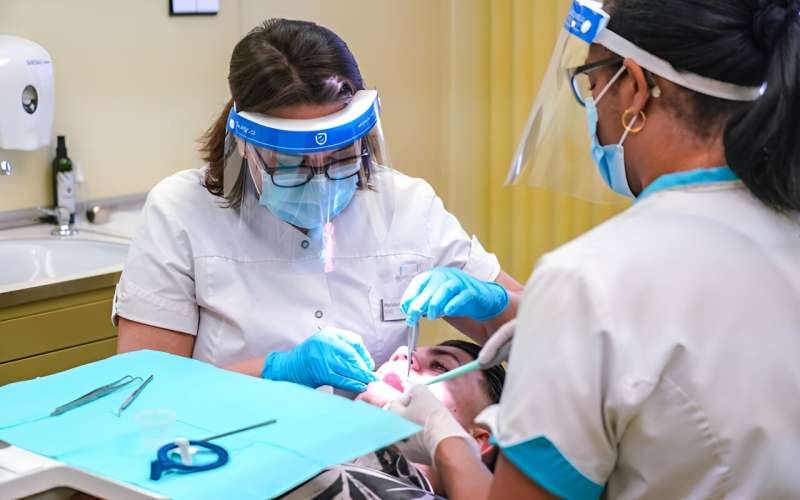This article has been reviewed according to Science X's editorial process and policies. Editors have highlighted the following attributes while ensuring the content's credibility:
fact-checked
trusted source
proofread
Oral health workers are burned out too, says report

Burnout is a prevalent problem for the health workforce, associated with employee turnover, absenteeism and depression. Burnout has also been shown to increase risk of medical errors and raises concerns about patient safety.
The COVID-19 pandemic heightened issues of burnout for health workers, especially those providing patient care. For the oral health workforce in particular, the chance of COVID-19 infection was considered high due to potential contact with respiratory aerosols and spatter during dental procedures.
A recent report by the Oral Health Workforce Research Center (OHWRC) at the University at Albany's Center for Health Workforce Studies (CHWS) in the School of Public Health explored the prevalence and effects of burnout and stress among the oral health workforce in safety-net dental organizations during the COVID-19 pandemic. Researchers worked with the Health Choice Network to analyze its 2021 online survey of clinicians working in 25 community health centers across the U.S.
The survey showed that oral health providers reported high levels of burnout, at rates similar to other medical providers involved in patient care. Of the oral health providers surveyed, 79.3% reported burnout; this is compared to 80.1% of surveyed primary care providers and of 76.2% of mental/behavioral health providers.
OHWRC researchers also conducted key-informant interviews with individuals in various positions at safety-net dental organizations throughout the U.S. in 2022. The goals of the interviews were to collect information about the impact of COVID-19-related stressors on dental staffs' stress and anxiety levels and to determine if burnout and stress affected employee recruitment and retention.
At the organizational level, reported stressors were primarily related to obtaining sufficient personal protective equipment (PPE), changing clinical protocols, reassigning clinicians to nontraditional roles and workforce shortages. The most common individual-level stressors were related to childcare, primarily for single parents, with women being disproportionately impacted. The lack of childcare was among the main reasons dental assistants and hygienists chose to leave their jobs.
"It's not only important to be aware of burnout, but to understand the reasons why health workers are experiencing it," says CHWS Director Jean Moore. "Once specific stressors have been identified, then strategies to address them at both organizational and personal levels can be implemented to reduce burnout for these providers."
To address these stressors, organizations implemented various strategies to support work-life-balance among their staff, including more time off, extra pay, more breaktime for staff and increased work-schedule flexibility for parents.
More information: Identifying Strategies to Improve Oral Health Workforce Resilience. www.chwsny.org/our-work/report … orkforce-resilience/





















